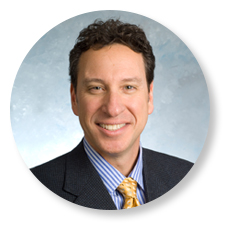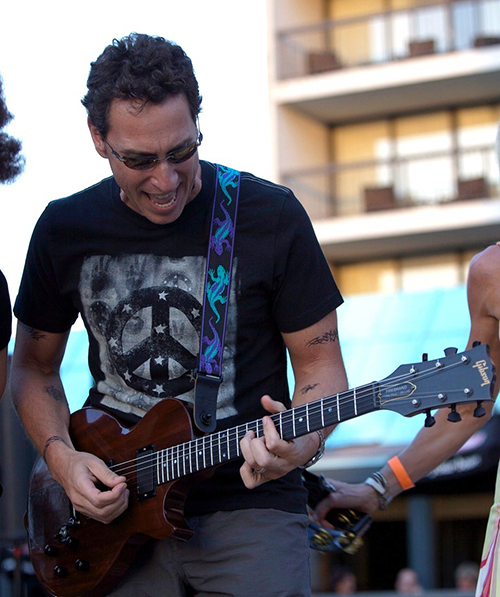
Why did you join AAOS?
People join organizations to be part of a community of people who share similar interests. As the umbrella organization for all orthopaedics, the AAOS was a natural fit for my desire to keep my focus broad. I wanted to stay engaged with all orthopaedics, and to become involved in helping to advance our discipline (though I was unsure how I would do that). There is no other organization that provides both opportunities simultaneously. As a younger person in this Society, I had many senior people help me to find a place where I could contribute and give back. The AAOS welcomes mentorship like no other orthopaedic society. As I have gotten older, I continue to remember the duty of more seasoned members to provide opportunities for younger members to contribute. This cyclic AAOS mission was and is exactly what I was looking for when determining which organizations I wanted to be a part of many years ago.
Do you currently volunteer with an AAOS committee? If yes, which one(s)?
Yes, I am currently the Foot and Ankle Content Chair of the Education Council. I love this job (see my discussion of the Resident Curriculum Project below)! But, in a month, I am giving it up to become the CME Courses Program Chair on the Education Council. I sat on the CME Committee as a member (in its old form) for four years, and loved structuring AAOS educational programming. I am looking forward to developing creating education opportunities for others given our challenging times. I am committed to critical thinking, honest assessment, self-criticism for improvement, and doing the best for my (our) patients. All of these philosophies are rooted in developing courses that highlight these values through engaging content and varied formats. As you can tell, I can’t wait to get going!
How do you define success?
The ability, desire, and interest in accomplishing one’s goals. But it is more than that. It is working to master something, anything, and being proud that you did not compromise to achieve that skill. Learning to test yourself in challenging situations to achieve outcomes you weren’t sure were possible. Success is not monetary, it is not numeric, it is calculating a mission, following through despite doubters, committing yourself to the conclusion. It is changing paradigms in the face of skeptics, for you know in your heart that your solution will make a difference. You might not always be right, for as Winston Churchill supposedly said, “Success consists of going from failure to failure without loss of enthusiasm” (!).
Who is your biggest inspiration and why?
Within the AAOS, it is Paul Tornetta III, MD, FAAOS, current Chair of the Education Council. I had been on the Education Council for a while before he was Chair, and, candidly, we were not moving forward fast. More show than substance. I was going to find something else to do within AAOS given the lack of direction. I was skeptical when Paul took the chair role, as we were sitting in our suits/ties/skirts/blouses waiting for him in the AAOS conference room, and he strolls in with shorts and a baggy t-shirt. Within 5 minutes I learned that no individual judgement should ever be made based on the fact someone will never be a YouTube influencer. His leadership style is ideal, he cuts through meaningless information to the root of a problem and targets obtainable solutions. He solicits opinions from those he feels have solid ideas to move the needle forward, and he summarizes the collective responses into useful action. And, I have never seen anyone respond to email or texts quicker than me, but he wins. If you see he is chairing a committee, join it. He is a leader everyone in the Academy should have the opportunity to work for and with.
My non-AAOS hero may sound trite, but it is my father. A former owner of a small family restaurant and ultimately working in a small local business in Toledo. The most practical, honest person I have ever known, without interest in self-absorption or self-recognition. The classic ethnic story, his mission was to be certain his four sons followed a path that suited them best, and his discipline taught us how to adhere to our goals without distraction (and I was easily distracted!). Besides myself, my three brothers are a chief financial officer, a professional photographer in NYC, and a morning show host for an alternative rock radio station in Chicago. It did not matter what you did, it was your passion for pursuit of excellence that mattered. We need more of that personality in this era.
What do you love most about AAOS?
I would say it is three things. I love the collegiality, making new friends in other disciplines and subspecialties that I would have never met without a collective organization. Every person brings something to the table, it may be easily apparent or more difficult to unveil, but in the end, expansion of your knowledge base is to your betterment.
I love the constant push to provide a better future for the next generations of orthopaedic surgeons. For example, I am proud of the Resident Curriculum Project we are currently developing on the Education Council. Having a unified curriculum for resident education is something that has been sought after since I was a resident in the early 1990’s. Leaders discussed it, but this type of massive effort sputtered due to lack of motivation to engage the hundreds of colleagues required to make it a reality. Amazingly, that has now been done due to the efforts of a core group of people not afraid to harass 500 other people stay on task. The work is not necessarily fun, but it is necessary. Once launched, this living document will grow and modify to regulate and satisfy the education needs of all orthopaedic residents, and ultimately help the patients they serve. This is just one example of the unselfish behavior of countless AAOS members who have joined together to help their colleagues get better and do better.
And, of course, I love the Annual Meeting. I have never missed this meeting due to the countless opportunities it provides. I have an opportunity to spend time with friends from across the country whom I don’t normally cross paths with given their subspecialties. I have the opportunity to learn whatever I feel might make me a better physician and surgeon through hundreds of instructional course lectures and symposia (I take advantage of that by attending ICL’s on topics away from my subspecialty to cross pollinate established theories and hopefully come up with better solutions). I have the opportunity to teach others whom I may not normally reach given the circles where we normally spend time, and the distance between our respective circles. And, I can evaluate critically new products on the market, and compare them to other products by simply walking 50 feet in a convention hall. Where ELSE can you do that over a 5 or 6 day stretch!
What advice would you give to new members of AAOS?
Get involved! Our professional lives can easily become a Groundhog Day experience of “get up, go to office, see patients, go home, get up, operate, go home, repeat” such that we feel we can barely keep our heads above water. You can also easily become absorbed in your subspecialty and continue to narrow your vision to the point of only speaking with people who do what you do. There are so many opportunities to make a real difference in the future of all of orthopaedics. And, best of all, every job, appointment, or committee you work with matters. On most committees, you will meet surgeons from other subspecialties, and the collaboration will enhance your own day to day practice. Start as a committee member, learn more about the mission, contribute to specific projects. Don’t rush it, your immediate goal should not surround becoming a Chair or Board Member. You will be better at both of these positions (if that is your end game) if you work on the ground level first. The AAOS has avenues for your to contribute in whatever your passion is: Education (mine), Advocacy, Research, Membership, whatever. Do something you like, not something you think you should do. Challenge yourself in something you know little about. You might find that you are good at it and can make a difference! There is much more to being an orthopedic surgeon than the daily grind. You will feel better about your day if you help not only your patients, but your colleagues as well.
Tell us a fun fact about yourself that not many people know?
I have been playing guitar since I was 10 years old. Sadly, I peaked early. Going to high school in the late 1970’s, the era of what is now called “classic rock”, I was a disciple of Eddie Van Halen from the moment I heard the first album as a freshman in 1978. I read and absorbed word for word his first interview for Guitar Player in June of that year, and I recorded every radio show interview he gave on my cassette recorder hooked up to my stereo. Then I played them back for my friends in my 1974 Malibu Classic. I learned Eruption note for note, one of my nicknames was “Van Haddad”. Unfortunately, my desire to become a professional rock musician (Eddie never used the term “rock star”) fell apart due to lack of shredding talent and musical creativity. So I had to find something else to do.
